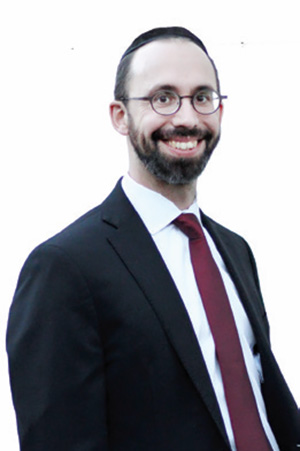
Two years ago, on this week of Parshas Naso, a Jewish man, Gary Turkel, a”h, went paddle boarding at Atlantic Beach. When he didn’t return in the evening, authorities began a massive search. Jews from all over came to search for him and daven for his safety. There were helicopters, planes, drones, jet-skis and ATVs looking for Gary. Hundreds of Jews from Lakewood, Passaic, Brooklyn and elsewhere came to search day and night. Alas, Gary had drowned. I remember being deeply moved by this huge communal effort, when the chances of survival were so slim.
And who can forget the world-wide efforts to find the missing three boys in Eretz Yisrael who were kidnapped and brutally murdered in 2014? For three weeks the names of Eyal Yifrah, Gilad Sha’er and Naftali Fraenkel were on the lips of Jews around the world as they stood as one, praying and hoping for the good news that never came.
The deep feeling of brotherhood that we Jews feel for each other is incredible.
This concept is illustrated at the end of Parshas Naso with the korbanos (sacrifices) offered by the nesi’im (tribal princes.) They all gave the same korban, so the lengthy repetition in the Torah of the korban given by each Nasi seems superfluous. The Baal Haturim explains that each nasi was initially planning on giving a unique sacrifice. However, the nasi of Shevet Yissachar suggested that they all give the exact same sacrifice on their assigned days, to show they were united. The Torah repeats each of the korbanos of the nesi’im individually because they accorded honor and love for each other.
The Chofetz Chaim comments that this unity had a huge impact. He refers to the midrash that tells us that Hashem only permitted a public sacrifice to be offered on Shabbos, such as the korban tamid (daily offering). But a personal sacrifice could not be brought on Shabbos since it violates the laws of Shabbos. However, Hashem made an exception for the korban of Shevet Ephraim, which was scheduled to be brought on the seventh day, Shabbos, based on its travel schedule. Hashem said, “You agreed to forgo your personal prestige in order to help bring harmony amongst all the nesi’im, so I will forgo my Shabbos for your korban.”
My daughter suggested to me that perhaps because all the nesi’im united and gave the same korban, this itself caused each of their korbanos to be considered a public korban.
People have a tendency to be idealistic and promote Jewish unity, participating in many programs and wonderful organizations that do a fantastic job. However, sometimes in our idealism for the big cause, we may overlook unity opportunities close by. Maybe it’s the Jew who is sitting or attempting to sit next to us. Perhaps it’s the Jew who we find sitting in our seat when we enter shul, or the Jew who comes to our door for a donation. Promoting “Jewish unity” includes kind treatment of all of those people too.
In the beginning of the parsha it directs that a census be taken of the sons of Gershon, “l’beis avosom l’mishpachosom”—according to their families, according to their father’s household. The Torah is teaching us that we need to look at our mishpacha—our own family—and only then to beis avosom, “extended family.” Volunteering with and giving to large national and international causes might add a sense of prestige and recognition to the good that’s being accomplished. There’s a lot less kavod (honor) in helping a family member or friend who needs it, where the help is done in private.
The Torah is giving us a clear and simple message: We must care about all of our fellow Jews. They may be across the globe, but they may also be right in front of our faces, such as family, friends and neighbors. The prestige in these gifts close to home may be less, but as in the case of the korbanos, they are truly pleasing to Hashem.
By Rabbi Baruch Bodenheim
Rabbi Baruch Bodenheim is the associate rosh yeshiva of Passaic Torah Institute (PTI)/Yeshiva Ner Boruch. PTI has attracted people from all over northern New Jersey, including Teaneck, Bergenfield, Paramus, Rockaway and Fair Lawn. He initiated and continues to lead a multi-level Gemara learning program. Recently he has spread out beyond PTI to begin a weekly beis midrash program with in-depth chavrusa learning in Livingston and Springfield. This year he joined Heichal Hatorah in Teaneck as a Gemara iyun rebbe. His email is rb@ptiweb.org.









